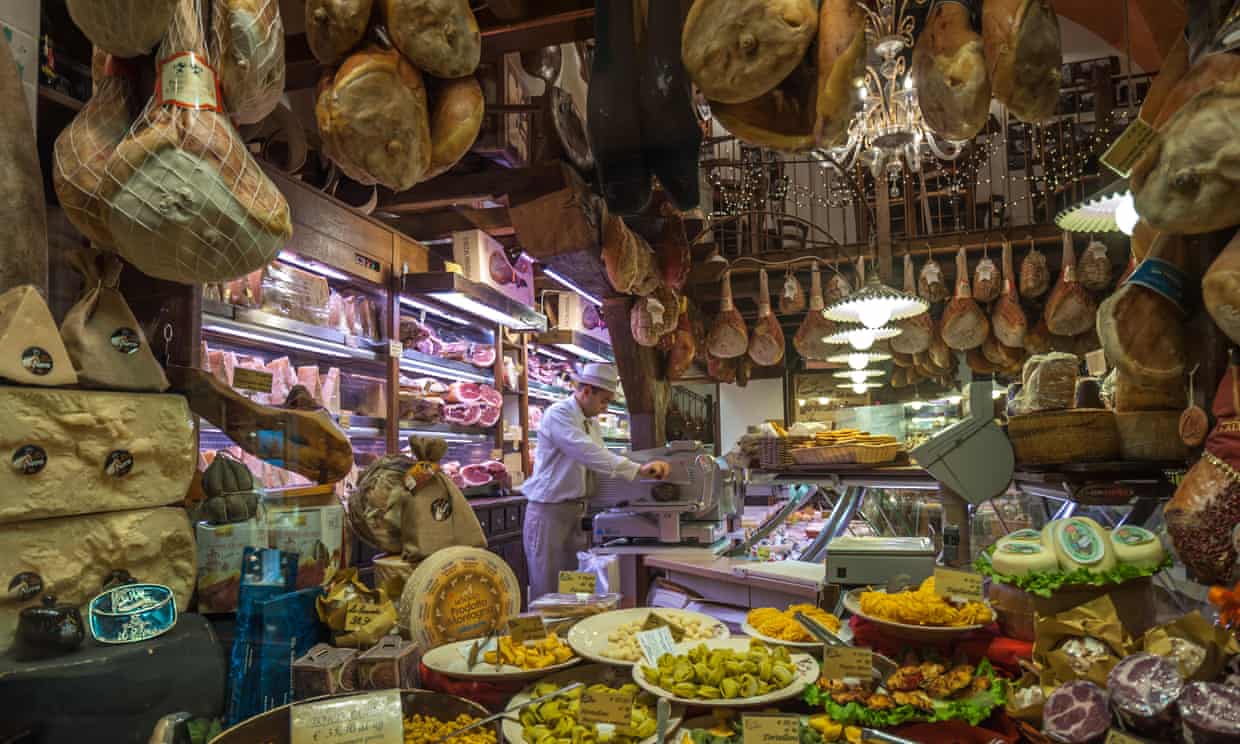
Meat industry
EU spending tens of millions of euros a year to promote meat eating
Campaigns to promote consumption of pork and veal labelled ‘indefensible’ in light of health and climate concerns
by Daniel BoffeyThe EU has been accused of an “indefensible” approach to human health and the climate crisis in spending tens of millions of euros each year on campaigns to reverse the decline in meat eating and trying to rebut so-called “fake news” on the mistreatment of animals bred for food.
Campaigns range from those designed to counter official warnings about the risk of cancer from eating red meat, to improving the public image of veal products said to be crucial in “deriving value from young male calves” superfluous to the dairy industry.
The EU provides an annual €200m (£166m) subsidy for the “promotion of agricultural products” each year. About €60m has been spent in the last three years on 21 meat marketing campaigns, including in the UK, according to research by the Dutch animal welfare organisation Wakker Dier.
The stated ambition of many of the projects has been to halt a decline in meat consumption amid a growing trend to vegetarianism among Europe’s young people.
The livestock sector is responsible for about 14.5% of total human-derived greenhouse gas emissions. Scientists have provided evidence of a link between cancer and diets involving pork, beef and lamb products.
The description on the European commission website of one recent campaign entitled Pork Lovers Europe, which secured €1.4m for marketing, including a “road-show” with a pink bus painted to look like a pig, noted “that the consumption of pork meat in Europe has decreased in recent years”.
It continued: “Therefore, it is very important to promote pork meat to restore the confidence of the consumer, which was shaken by news such as the last IARC [International Agency for Research on Cancer] report.”
Scientists at the IARC, a UN agency, reported in 2015 that the consumption of bacon, red meat and glyphosate weedkiller increased the risk of developing cancer. The Pork Lovers Europe adverts targeted consumers in the UK, Spain, Germany, France and Portugal.
A campaign by the Association of Poultry Processors and Poultry Trade which will be run in six member states at a cost to EU taxpayers of €4.4m aims over the next two years to “contradict myths and fake news” about the rearing and slaughter of chickens for meat.
“EU poultry consumption in the European Union is still increasing but at a slower pace, as more and more consumers are mistrustful regarding the poultry meat production,” the European commission’s website says. The campaign, targeting a 1.22% growth in chicken consumption in 2020 and 2021, is aimed at “young children, professionals, media and opinion leaders”.
A second pork campaign received a €2.5m subsidy for an initiative aimed at Danes and Swedes. “Pork is no longer a natural part of the diet of young Scandinavians,” the commission website says. “They tend to eat less meat in general and to avoid pork in particular. The aim is to increase consumer demand and thus halt any otherwise expected fall.”
A campaign in favour of the Dutch veal sector to promote the meat of calves in the Belgian, Italian and French markets received a €6m subsidy.
“The veal market has been declining since the 2000s,” says a description of the project on the commission website. “There are various reasons for this: the economic crisis, changes in consumption behaviour and above all a lack of top-of-mind awareness. France, the Netherlands, Belgium and Italy are minded to fight this fall in consumption by boosting the image consumers have of European veal.”
Sjoerd van de Wouw, a researcher at Wakker Dier foundation, said the funding policy was outdated indefensible. “We understand that you need to consider the interests of producers but not by completing ignoring the interests of consumers and the climate,” he said.
In response, a European commission spokesman said: “The selection of projects is based on a strict and defined procedure involving external evaluators. The producers’ organisations send proposals regarding their campaign ideas and also participate in the funding of the campaigns.
“In an effort to constantly evaluate and adjust its existing policy, the commission will soon launch a public consultation on the EU promotion policy for agricultural products.”